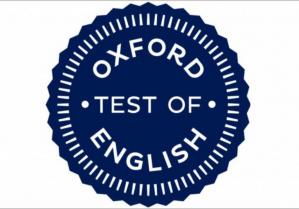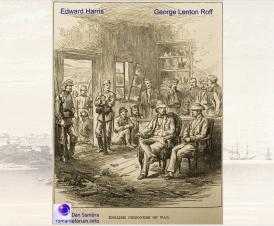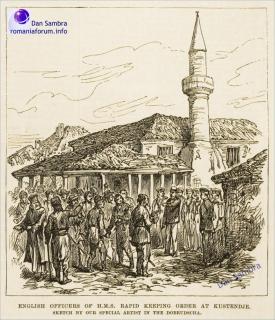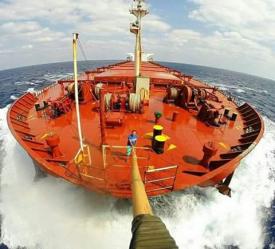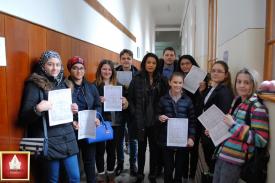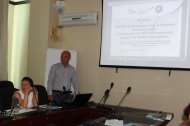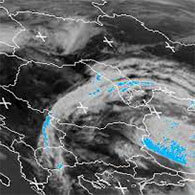Cristina Guseth, director of Freedom House Romania "If it is fraud and cases are brought to court, the daunting penalties could determine the civil clerks to be more careful in observance of the law"
Cristina Guseth, director of Freedom House Romania: "If it is fraud and cases are brought to court, the daunting
21 Jun, 2013 01:09
ZIUA de Constanta
 2850
Marime text
2850
Marime text
 2850
Marime text
2850
Marime text

 Cristina Guseth, director of Freedom House Romania, speaks in an interview granted to ZIUA de Constanta Newspaper, about the most exposed to corruption areas in public procurement and about the media's role in identifying irregularities in procurement.
Cristina Guseth, director of Freedom House Romania, speaks in an interview granted to ZIUA de Constanta Newspaper, about the most exposed to corruption areas in public procurement and about the media's role in identifying irregularities in procurement.Freedom House Romania is currently carrying a transnational project named "Combating crime in public procurement. An operational approach ". It is a very ambitious project, but to what extent do you think it will succeed to increase the level of specialization in combating fraud?
First of all, it is the first project to put together 11 public institutions and 6 NGO’s and associations with relevant experience. Cases of procurement fraud are presented over 14 seminars, attended by prosecutors, judges for criminal and administrative law and operative officers. The result will be that more than 350 magistrates and operative officers will be trained in this project.
The project is addressed in a complete and complex manner: on the one hand, in terms of regulatory and monitoring administrative institutions, on the other hand, the prospect of inquiry, investigation, and the third approach is the European perspective. From this point of view, it is intended to harmonize the procedures and good practice examples from EU countries such as France, Germany, Italy and Portugal.
There are also practical exercises in groups of police officers, prosecutors and judges to simulate chain investigation and trial of issues relating to procurement fraud.
What are the areas most exposed to corruption and on which ones will you focus more on this project?
Infrastructure and European funds.
Can we talk about a broad national phenomenon in terms of preferential directing of public funds as a result of less transparent auctions?
Yes, no doubt. And the last MCV report points out that the public procurement reform in Romania is stagnating.
What institutions in Romania could impose increased transparency requirements in public procurement?
Participants at the seminars proposed involvement in the project, in addition to the already integrated institutions, of the Court of Auditors, of the Competition Council and of NAFA (National Agency for Fiscal Administration). Each of these has expertise. Thus, this brings us again to the advantage of this project: they are all together, they communicate, they know each other and they understand each other's work. I think it is essential that participants understand that it is important to prevent and not only to apply daunting penalties.
In this regard, it is important for journalists to understand how these procurement procedures carry out, to know when the procedures are directed, to be able to identify potential fraud indicators and signals and to write well informed about such matters.
What do you think about implementation of a mechanism for early check on conflicts of interest in the area of public procurement?
National Integrity Agency is currently developing such a tool - the computerized system whereby officials and their relatives up to the fourth degree involved in procurement procedures will be monitored in real time. On the other hand, Katharina Vierlich, representing DG Market, said in one of the conferences of the project that, in Romania, the conflict of interest is treated formally and relations of interest should be pursued regardless of the degree of relationship, they should go beyond the formal aspect, which consumes a lot of resources and time.
Do you think the active in procurement process civil clerks should be monitored?
I think transparency procedures can help correct procurement or may lead to identification of potential fraud in the procurement process. If it is fraud and cases are brought to court, daunting penalties could determine the civil clerks to be more careful in observance of the law.
What do you think about Minister of European funds Eugen Teodorovici proposal to remove of the selection criteria the criterion of "lowest price"?
This criterion may remain, but not on services but on the property. On the other hand, it is an indicator of fraud as long as it goes to a value of less than 85% of the estimated price by the contracting authority. It must be pursued if the contracting authority requires clarification to the operator who comes with an offer well below market.
How can be measured performance of public procurement?
Performance can be measured by the appropriateness of the procurement process, the extent to which it truly serves the community.
Then, technically, performance can be measured by contract evaluation after scrolling. Evaluation must be done by an independent third party to the implementation procedure of the procurement procedure. Because ultimately, the acquisition is not an end in itself, the implementation of the contract is what matters, the acquisition is intended to provide effective and efficient services and quality goods at market price. This inevitably leads to efficient use of public funds, a necessary measure for the economic development of this country.
Freedom House organizes several seminars within the project, which will bring together over 500 judges, prosecutors and operative officers. How did they get this project, what do they think about this initiative?
Two seminars have been attended by about 50 representatives of the target group. They considered useful the interactivity of the seminars, the presented cases performed on mixed groups of participants - comprised of prosecutors, judges of criminal law, judges of administrative law and operative officers - as well as reuniting this target group. This way, the connection between administrative and criminal law is made, the first of this kind in Romania.
What stage is the relevant legislation? Is it outdated, can it be modified or improved?
The new European directives in the field are pending and it will require implementation in each member state. It would be good this time to be a law, not an emergency ordinance. Current Romanian legislation is very arduous and the procedures for implementing the national funds are more complicated and bureaucratic than the European ones.
For example, in Romania it is intended to raise the limit of the direct procurement to 30,000 euro, provision viewed with suspicion by the institutions involved in the monitoring and regulation, while the European Union has already the limit of 60,000 euros.
How important is the media in implementation of the project developed by Freedom House Romania?
The media is important because it takes the message beyond the target group. The media can develop the role of giving signals when identifying irregularities in procurement procedures and may encourage real competition in this area. And for this, the press must be more professional in this field.
"Local barons currently control practically all budgetary resources. Amid the decline of the media, they generally have increased influence on newspapers and broadcasters in areas they shepherd and they even literally control them, through intermediaries or businessmen depending on contracts with local authorities. I know plenty of honest journalists in the province, some of them attended the training courses organized by us, but unfortunately their editorial freedom is smaller and smaller. It's good that the NAD (National Anticorruption Directorate) starts to expose these kindred of media and politics, because this is the only way the honest journalism can survive", declared Cristina Guseth for Reporter Virtual.
Urmareste-ne pe Grupul de Whatsapp
Comentarii
 Fondul Documentar Dobrogea de ieri și de azi
Fondul Documentar Dobrogea de ieri și de azi





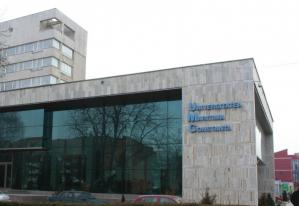
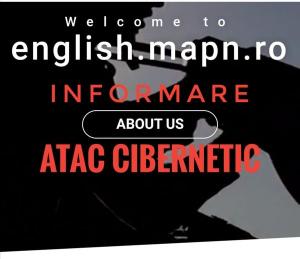
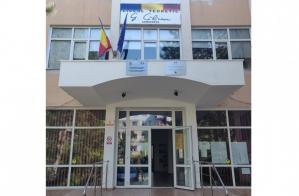
_thumb2.jpg)

